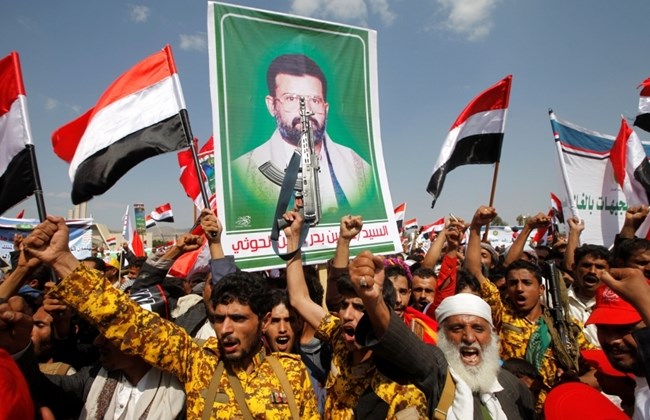
2017/10/20
توترات جديده في تحالف صالح والحوثي

صنعاء: ظهرت علامات جديدة للتوتر بين المتمردين الحوثيين اليمنيين والرئيس السابق علي عبد الله صالح امس الخميس مع موجة جديدة من الاتهامات المتبادلة تهدد تحالفها المستمر منذ ثلاث سنوات. وكان صالح والحوثيون يسيطران معا على صنعاء منذ أيلول / سبتمبر 2014، ولكن التوترات آخذة في الارتفاع في صفوفها منذ نزاع عام بين الاثنين في آب / أغسطس.
اشتكى المؤتمر الشعبي العام امس الخميس من الإذلال على أيدي الحوثيين متهما اياهم بشن "حملة مدبرة" ضد الرجل الاقوى صالح على حد وصفهم.
وفى رسالة مفتوحة الى انصار الله، قال المؤتمر ان الوزراء فى الحكومة من المؤتمريين يتعرضون للاذلال من جانب الحوثيين الذين "يفتقرون الى الرغبة فى الحفاظ على الشراكة. "
ورفضت جماعة أنصار الله، واتهمت المؤتمر الشعبي العام بكسر اتفاقه مع الحوثيين وقبول أموال من الحكومة المنافسة للرئيس عبد ربه منصور هادي، في بيان من الزعيم السياسي للحزب صلاح الصماد.
واتهم الصماد المؤتمر الشعبي العام ب "الحد من الوحدة الداخلية" وشل الحكومة المتفق عليها.
ظهرت الشقوق في البداية بين صالح وعبد الملك الحوثي في آب / أغسطس عندما اتهم الحوثيون صالح بالخيانة ووصفهم بانهم مدعومين من إيران وعلى أنهم "ميليشيات".
على مدى عقود من العداء ، انضمت القوات الموالية لصالح والحوثيين إلى صفوف الحوثيين في عام 2014 لدفع حكومة هادي إلى الخروج من صنعاء.
واعتبر المحللون منذ بدايته التحالف بمثابة تحرك تكتيكي من الجانبين، حيث يستغل الحوثيين السلطة السياسية صالح والرئيس السابق يستفيدون من مدافع الحوثيين على الأرض.
وقد لقى ما لا يقل عن 10 الاف شخص مصرعهم منذ انضمام التحالف الى حرب اليمن فى عام 2015.
👈🏻المصدر : ناشونال يمن
SANAA: New signs of tension between Yemen’s Houthi rebels and former President Ali Abdullah Saleh emerged Thursday with a fresh wave of mutual accusations threatening their three-year alliance. Saleh and the Houthis have jointly controlled Sanaa since September 2014, but tensions have been rising in their ranks since a public dispute between the two in August.
Saleh’s General People’s Congress Thursday complained of humiliation at the hands of the Houthis, accusing the rebels of waging an “orchestrated campaign” against the former strongman.
In an open letter to Ansar Allah, the political party led by rebel chief Abdel-Malek al-Houthi, the GPC said its ministers in the unofficial rebel government had been “humiliated” by the Houthis, who “lack the will to maintain partnership.”
Ansar Allah fired back, accusing the GPC of breaking their pact with the Houthis and accepting funds from the rival government of President Abed Rabbou Mansour Hadi, in a statement by the party’s political leader Salah Sammad.
Sammad accused the GPC of “sapping internal unity” and paralyzing the rebel government.
Cracks first surfaced between Saleh and Abdel-Malek al-Houthi in August when the Houthis accused Saleh of treason after the former president publicly dismissed the Iran-backed rebels as “militias.”
For decades sworn enemies, forces loyal to Saleh and the Houthis joined ranks in 2014 to drive the Hadi government out of Sanaa.
From its inception, analysts have viewed the alliance as a tactical move by both sides, with rebels exploiting Saleh’s political power and the former president benefiting from the Houthis’ guns on the ground.
The rebel alliance is locked in a war with government forces backed by a Saudi-led Arab military coalition that has pushed the country to the brink of famine.
At least 10,000 people have been killed since the coalition joined the Yemen war in 2015.
تم طباعة هذه الخبر من موقع السلام نيوز www.yen-news.com -
رابط الخبر: http://alsalam-news.com/news3450.html